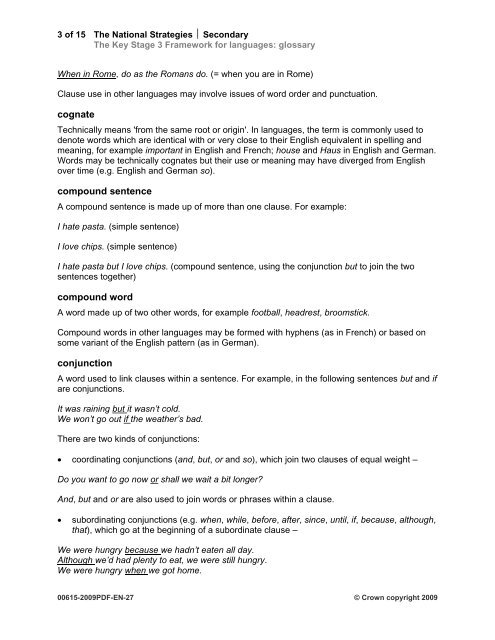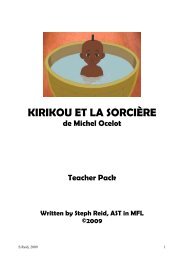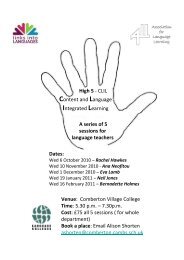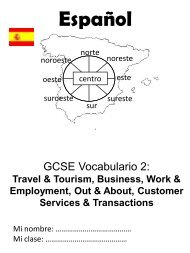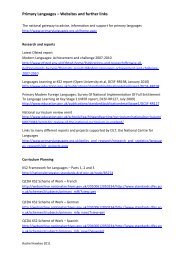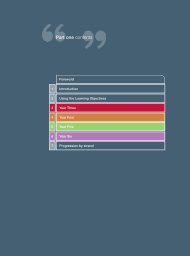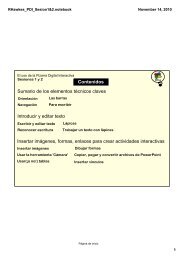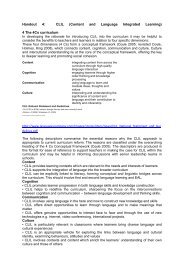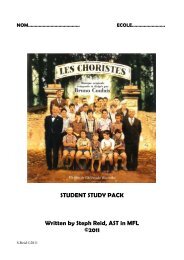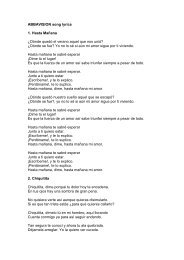Key Stage 3 Framework for languages ... - Rachel Hawkes
Key Stage 3 Framework for languages ... - Rachel Hawkes
Key Stage 3 Framework for languages ... - Rachel Hawkes
You also want an ePaper? Increase the reach of your titles
YUMPU automatically turns print PDFs into web optimized ePapers that Google loves.
3 of 15 The National Strategies ⏐ Secondary<br />
The <strong>Key</strong> <strong>Stage</strong> 3 <strong>Framework</strong> <strong>for</strong> <strong>languages</strong>: glossary<br />
When in Rome, do as the Romans do. (= when you are in Rome)<br />
Clause use in other <strong>languages</strong> may involve issues of word order and punctuation.<br />
cognate<br />
Technically means 'from the same root or origin'. In <strong>languages</strong>, the term is commonly used to<br />
denote words which are identical with or very close to their English equivalent in spelling and<br />
meaning, <strong>for</strong> example important in English and French; house and Haus in English and German.<br />
Words may be technically cognates but their use or meaning may have diverged from English<br />
over time (e.g. English and German so).<br />
compound sentence<br />
A compound sentence is made up of more than one clause. For example:<br />
I hate pasta. (simple sentence)<br />
I love chips. (simple sentence)<br />
I hate pasta but I love chips. (compound sentence, using the conjunction but to join the two<br />
sentences together)<br />
compound word<br />
A word made up of two other words, <strong>for</strong> example football, headrest, broomstick.<br />
Compound words in other <strong>languages</strong> may be <strong>for</strong>med with hyphens (as in French) or based on<br />
some variant of the English pattern (as in German).<br />
conjunction<br />
A word used to link clauses within a sentence. For example, in the following sentences but and if<br />
are conjunctions.<br />
It was raining but it wasn’t cold.<br />
We won’t go out if the weather’s bad.<br />
There are two kinds of conjunctions:<br />
• coordinating conjunctions (and, but, or and so), which join two clauses of equal weight –<br />
Do you want to go now or shall we wait a bit longer<br />
And, but and or are also used to join words or phrases within a clause.<br />
• subordinating conjunctions (e.g. when, while, be<strong>for</strong>e, after, since, until, if, because, although,<br />
that), which go at the beginning of a subordinate clause –<br />
We were hungry because we hadn’t eaten all day.<br />
Although we’d had plenty to eat, we were still hungry.<br />
We were hungry when we got home.<br />
00615-2009PDF-EN-27 © Crown copyright 2009


